|
August 2018
 Newsletter Archives
Newsletter Archives |
|
August 9 Gathering - The History of Scotland
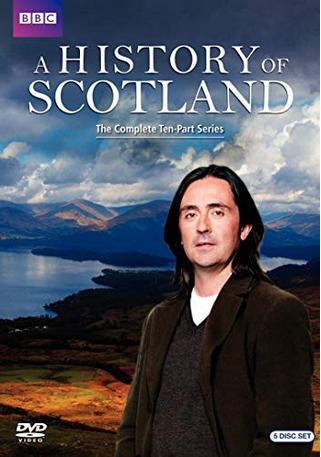 |
|
History of Scotland, God's Chosen People
Join us for this DVD presentation, and discussion afterwards.
Neil Oliver continues his journey through Scotland's past with the story of the Covenanters, whose profound religioius beliefs were declared in the National Covenant of 1638. That document sparked revolution, started the Civil War that cost Charles I his head and thousands of Scots their lives.
|
A cash bar and light refreshments are available. Attendance is always free for Society members. Guests are welcome at a $5 donation.
The meeting will be held at the Irish Cultural Center, 1106 N. Central in Phoenix. Schedule for the evening:
| |
6:30 |
Social Half Hour |
|
8:00 |
|
Discussion |
|
7:00 |
DVD Presentation |
|
8:30 |
|
50/50 Raffle |
|
|
Letter from the President
David McBee
In memory of Jean Latimer aka Mama Jean
Jean is a determined woman of great internal strength and enduring compassion. She has reached out to many people over time that were at different levels in their commitment to or understanding of a historical society and charity. She has guided this Caledonian Society through some difficult and lean times but is also open to new ideas and approaches when people brought her signs of commitment and passion.
.jpg) She has brought much value to the group as a Society member and at high levels of service. She is never afraid to speak her mind and disagree but she brings personal value and caring with it. Her wisdom and insight are still coming to fruition.
She has brought much value to the group as a Society member and at high levels of service. She is never afraid to speak her mind and disagree but she brings personal value and caring with it. Her wisdom and insight are still coming to fruition.
I do not speak of her here in the past tense because she is still with us in spirit and honor. As the new President of the Society, I will do my best to carry on her influence to this good group of great people.
Over the time that I had the pleasure of knowing Mama Jean, I made it a point to get to her as soon as I saw her to greet her. I hoped to interrupt whatever she was doing to get in a hug and hopefully to also receive a scolding with laughter. The twinkle in the eye comes from a rich soul and I will miss that the most. Let’s keep that twinkle going and make sure to greet each other at every function with same.
|
|
Jean Latimer - A Remembrance
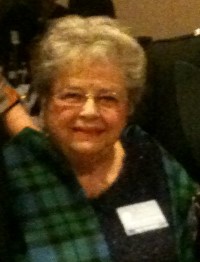 The Caledonian Society is mourning the loss of one of its best-loved and most stalwart members, Jean Latimer. Jean was a long-time member and past President of the Society, but more than that she served as a guiding light and an inspiration to all who came in contact with her. When the Society was in decline several years ago, it was Jean’s vision, determination, and love of her Scottish heritage that kept it together.
The Caledonian Society is mourning the loss of one of its best-loved and most stalwart members, Jean Latimer. Jean was a long-time member and past President of the Society, but more than that she served as a guiding light and an inspiration to all who came in contact with her. When the Society was in decline several years ago, it was Jean’s vision, determination, and love of her Scottish heritage that kept it together.
‘Mama Jean’, as she was affectionately known to many, was a Society member for 22 years, and was a familiar figure to everyone associated with the organization. A proud member of the Clan MacKay through her grandmother Isabelle MacKay Davison who hailed from the Isle of Lewis, Jean had been attending Highland Games and other Scottish gatherings for as long as she could remember.
She was introduced to the Caledonian Society by her great friend Jean Whyman, and became a member in 1996 during the Presidency of Harold Stewart. Attending the annual Games was one of her greatest passions and she helped out every year in various capacities. During the opening ceremonies for the 2017 Games, Jean was presented with the Society’s Lifetime Member Award by then President Don Finch.
Jean was one of the most prominent and influential members in the Society’s history. She served as Society President between 2010 and 2012. Prior to that she had been Recording Secretary for several years, and co-chair of the Robert Burns Dinner.
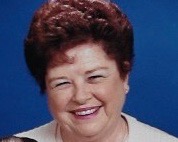 In a heartfelt tribute, Society President David McBee remembered Jean as a “determined woman of great internal strength and enduring compassion.” She possessed, he said, “wisdom and insight.”
In a heartfelt tribute, Society President David McBee remembered Jean as a “determined woman of great internal strength and enduring compassion.” She possessed, he said, “wisdom and insight.”
David added, “Over the time that I had the pleasure of knowing Mama Jean, I made it a point to get to her as soon as I saw her to greet her.”
Immediate Past President Don Finch recalled a lady who “kept the organization together” during a period of declining membership early in the second decade of the 2000s. Don, who was in Scotland when Jean passed away, said the main reasons for the decline were an aging membership, and difficulty in recruiting board members, but that Jean changed the venue of the Highland Games to Steele Indian Park, and the monthly meetings from Scottsdale to the Irish Cultural Center.
“She worked with Mark Pelletier to grow the clan participation, and she maintained relations with the former core board members, and taught me to do the same – people such as Alan and Mary Jo Ramsdell, Don and Bobbie Hoeck, William Wallace, Jean Whyman, Pam and Harold Stewart, and some of the older members, many of whom were also with Daughters of Scotia.
Don said Jean had befriended his wife Pearl's mother, Hazel, who was also born and brought up in Alberta, and often sat with her at formal Society dinners. Jean held a tea for the DOS ladies at the ICC until 2017 and, whenever she brought snacks for Society monthly gatherings, she never asked for reimbursement.
.jpg) She was born Wilma Jean Reeves, in Wainwright, Alberta, Canada, on 18 February, 1932. When she was a schoolgirl, the family moved to Tennessee, then to Douglas, Arizona. It was there she met her husband, Milburn L. Latimer (known as Mel). He was a US Navy veteran who flew as reconnaissance man on fighter jets, and died in 1990 while in his 50s. Both Jean and Mel worked in Phoenix for Mountain Bell Telephones, where Jean was a network manager.
She was born Wilma Jean Reeves, in Wainwright, Alberta, Canada, on 18 February, 1932. When she was a schoolgirl, the family moved to Tennessee, then to Douglas, Arizona. It was there she met her husband, Milburn L. Latimer (known as Mel). He was a US Navy veteran who flew as reconnaissance man on fighter jets, and died in 1990 while in his 50s. Both Jean and Mel worked in Phoenix for Mountain Bell Telephones, where Jean was a network manager.
In an article for the Desert Highlander in 2014, Jean recalled, “There were many Scottish family friends in my early childhood, and I was named for one of them – Jean Stewart. I attended the Robert Burns event with my grandparents most every year from age three through six. We would also drive four plus hours into Edmonton, Alberta, to attend the Highland Games during the summer. I loved the bands and I still do.”
In the same interview she said, “During the time that I served as President of the Society, we suffered greatly with a decline in attendance and we made the decision to move from Scottsdale to the Irish Cultural Center in Phoenix. It was a huge ‘cost-cutter’ for us but also proved to be a wonderful location and relationship. We were also blessed then to have Jason Temple show up and ask if he could help by filling the available Games Chairman position.”
Her nephew Dave Tetrault, who lives in Tucson, said that ever since he has known Jean, her love of Scotland and her Scottish ancestry has shone through. “She was always inviting us to the Highland Games in Tucson and Phoenix and for years and years we have been attending.”
Jean passed away on Wednesday, 25 July, in Tucson. She was aged 86 and was surrounded by family. Her funeral service was held on Saturday 4 August at Westminster Presbyterian Church on 19th Avenue, Phoenix, where she was a regular attender.
Not only was Jean loved by all who came into contact with her, she in turn loved the Society and all its members.
In her 2014 interview, she said, “I am so grateful to all the wonderful people I have had the honor to serve with as officers of the Society. They are quite simply THE BEST.”
|
|
2019 Highland Games Planning
The 2018 Phoenix Scottish Games was a huge success. But there’s never time for organizers to rest on their laurels. The 2019 event is only seven months away and preparations have already started in earnest.
The latest in a series of meetings to discuss Games organization will be held on Tuesday 14 August at 6.30 pm in Chase’s Diner, 2040 Alma School Rd. (north-west corner of Alma School and Warner). Food and drink can of course be purchased at the venue.
.jpg) So far the park has been reserved, and contracts are being worked out with entertainment and facilities providers. Among the items up for discussion are special 55th anniversary events; changes to the whisky tent sponsorship, a new VIP program, and a celebration with Four Peaks brewery to mark the halfway mark till the Games.
So far the park has been reserved, and contracts are being worked out with entertainment and facilities providers. Among the items up for discussion are special 55th anniversary events; changes to the whisky tent sponsorship, a new VIP program, and a celebration with Four Peaks brewery to mark the halfway mark till the Games.
Games chairman Paul Bell is always looking for members to get involved and bring new ideas to help the area chairs with their duties. If you have any special skills or interests which you feel can be of help, or just want to support the Games, you are most welcome to come along.
It is planned to hold a meeting every month between now and the Games to discuss progress and get the organization completed. Depending on progress, there may be no meeting over the Christmas/New Year period.
|
|
Scotland's Hidden Gems - Cultybraggan POW Camp
Iain Lundy
Deep in the Perthshire countryside is a fascinating yet grim reminder that life here was nowhere near as peaceful as it seems today. In fact, around 75 years ago, the countryside near the village of Comrie was home to men considered among the most dangerous in Europe.
.jpg)
The strange collection of tin huts(or Nissen huts) at Cultybraggan was Prisoner of War camp 21 during World War 2. It housed 4,000 Category A prisoners, most of whom were classified as ‘Black’, meaning they were regarded as the most fanatical and committed Nazis in captivity.
The rolling hills of central Scotland were a long way from the front line where most of these men had been captured. They had come from the battlefields of Africa and Europe, and the camp was divided into five distinct compounds – Army, Navy, Air Force, SS, and Officers.
While most resented being prevented from taking any further part in the war, many others were struck by the tranquility of their surroundings, and the ‘civilized’ way they were treated by their guards and the Scottish people in general.
In 1944 Cultybraggan was the scene of a notorious incident. One prisoner, Wolfgang Rosterg, was a known ‘anti-Nazi’ and suspected of being a British spy. He was subjected to a kangaroo court, beaten to a pulp and hanged in his cell. Five members of the lynching party were taken to London and hanged after the war, the largest multiple execution in Britain in the 20th century.
If you visited the place now, you would find it hard to believe that it has such a violent past. But many of the ‘hard man’ Nazis changed their outlook on life during their time in Perthshire. A former POW and soldier in the Waffen SS, Heinrich Steinmeyer, bequeathed 384,000 pounds to the village of Comrie. The money was to be used for the elderly population.
The former Nazi Stormtrooper died in 2014, aged 90, and his ashes were scattered in the hills above Cultybraggan. He said his experience there transformed him, and made him realize he should not have been fighting the war.
His will stated, “I would like to express my gratitude to the people of Scotland for the kindness and generosity that I have experienced in Scotland during my imprisonment of war and hereafter.”
In 1990, during the Cold War, an underground bunker was built at the camp. It was to house the Secretary of State for Scotland, members of the BBC, British Telecom, and other important organizations during an emergency. With the Cold War over, the bunker is now in disuse.
.jpg)
Click map to enlarge |
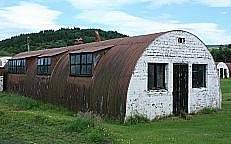 |
Cultybraggan is a fascinating place to visit, whether or not you are interested in warfare. It lies south-west of Comrie and is open to the public.
Research Your Scottish Ancestry
|
|
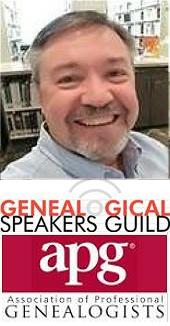 The Court House - a Potential Gold Mine The Court House - a Potential Gold Mine
by Robert M. Wilbanks IV, B.A.
Chief Genealogist & Historian, C.S.A.
genealogy@arizonascots.com
Unique to the North American landscape is a man-made physical feature called the Courthouse, or Court House. It is a building that is home to local courts of law and regional government officials and activities. Most notable in small rural counties, it is usually the county seat, and often centered and equidistant from the farthest four corners of the county jurisdictional boundaries.
The term itself is also unique to North America, as usually in other English-speaking countries the buildings that house courts of law are simply called “courts” or “court buildings”.
In Continental Europe, and former non-English-speaking European colonies, the court buildings are often called “palace of justice”.
I will cover English and Scottish courts, records and record keeping in future articles. This article will focus on the importance of the American County Courthouse, the records they generate, and their genealogical value.
The Courthouse
While there are certainly other levels of jurisdictions of law and governments, such as city, State and Federal, the County Courthouse is the most prominent and significant of records in genealogical research. The County Courthouse is the site of our ancestors’ everyday lives, daily routine and activities related to business as well as court. As a result, a town would grow around the courthouse, eventually with a Post Office, stagecoach, and later the train to haul goods and materials in and out of the county. Often, there was a parade ground, or green, in front of the Courthouse, where the militia would train, community picnics, or other celebratory functions would occur. Some of these courthouses are some of the most grand and historically notable architecture across the country.
.jpg) So what is the genealogical significance of the Country Courthouse? The most commonly used records for genealogy research are found here. Through them, you can verify an ancestor’s residence, or learn previous residence, learn their business or occupation, financial assets and/or societal status, or citizenship status, relationships, age and possible dates of births, marriages and deaths, and so much more. While Criminal Court would be the first thing that comes to mind, there are many, many other types of records created at the Courthouse relevant to the daily lives of our ancestors.
So what is the genealogical significance of the Country Courthouse? The most commonly used records for genealogy research are found here. Through them, you can verify an ancestor’s residence, or learn previous residence, learn their business or occupation, financial assets and/or societal status, or citizenship status, relationships, age and possible dates of births, marriages and deaths, and so much more. While Criminal Court would be the first thing that comes to mind, there are many, many other types of records created at the Courthouse relevant to the daily lives of our ancestors.
The Records
Property deeds are filed at the County Courthouse, including land, slaves, cattle, etc. Mortgages, liens or other contractual or monetary responsibilities would be filed in the County Court. Cattle brands are filed at the Courthouse. Early Naturalizations were conducted at the Courthouse. Wills and the probating of the estates was a required court proceeding for the proper dispensation of property. Guardianship bonds would be filed there. Annual Tax returns would be collected by the county. Voters registrations, Sheriffs orders, Jury duty, militia records, official appointments, etc. Even frequent law suit cases; our ancestors were very litigious. And on occasion, depending upon the state or the region of the country, many Counties recorded marriages, requiring a bond or license, and some may even have recorded births and deaths.
However, one of the unfortunate aspects of Courthouses, is often, particularly early on, they were constructed of wood, and stored all the relevant paper court documents. This made the Courthouse a tinderbox to fire, as well as subjected to floods, tornados and more. Thus, frequently records were lost, creating the genealogical term “burnt counties,” referring to counties suffering great loss of records. As an example, 50% of Alabama’s county courthouses suffered a minimum of 2 fires during the history of the county. Many of Virginia’s and Georgia’s courthouses suffered extensive loss of records due to the Civil War. However, not everything was lost, and thanks to differing levels of jurisdictions and redundant bureaucracy, research is still possible in these counties.
Your Task
Therefore, it is incumbent upon the researcher to know the county residence of an ancestor, learn about the ever-fluctuating county jurisdictional lines, history of the county, the courthouse and the courts, the types of records kept, whether those records still exist, and where they might be accessible.
The possibilities are vast, making the County Courthouse a potential Goldmine of genealogical information. So when researching your genealogy in the United States, records created at the Country jurisdictional level is going to be among the most important, and most frequent, resources you will utilize.
This is another of a series of articles in which I show you the basics of searching for your family history, discussing the use of family records, public records, and online resources nationally and internationally, etc. The previous articles are now available on the Genealogy Section of this website. See “Genealogy” in the menu options at the top of the web page.
|
|
New Officers of the Society
|
Three new faces were voted on to the Society’s committee in May.
The new secretary is Linda McGuire, who is also the USA Southwest Commissioner for the Clan Currie Society, and the Director of the clan’s international family gatherings. Her Scottish ancestors began life on the island of South Uist, and moved to Cape Breton, Nova Scotia, in the 19th century. Linda is currently engaged in an extensive genealogy project involving both her Scottish and Canadian roots.
On the subject of family history, the Society’s chief genealogist, Robert Wilbanks lV was voted on to the Board as a trustee. Robert has been interested in genealogy since the age of 12, and has now been a professional for more than 30 years. All Society members can book one free hour with him to help their genealogy research.
Kevin Conquest, the Drum Major with the City of Mesa Caledonian Pipe Band, is the third new face, also voted on as a trustee. He has taken championship titles in three countries, and performed worldwide. Kevin is a familiar figure in Society circles, and was presented with a rosewood mace in 2016 for 20 years service as Senior Drum Major at the Scottish Games. In 2017 Kevin received a grant of heraldic arms from the Lord Lyon, and last month was honored with an appointment to the Order of St John from the Queen.
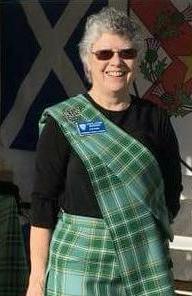
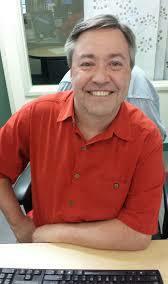
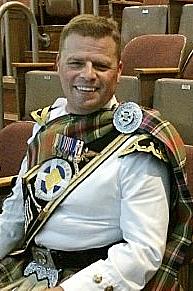
|
Members Sought for a Social Committee
|
Society President David McBee has urged volunteers to come forward and form a social committee to help organize events, and to take some of the pressure off the shoulders of Board members.
It is envisaged that the group would arrange social events, help plan and organize themes and speakers for monthly meetings, pitch in with ideas, and generally help the smooth running of the Society.
A Board member will stay involved with the committee, but the idea is to spread the effort and involvement as widely as possible. If you are interested, contact David or any other Board member.
|
|
|
Caledonian Society Officers
|
|
COMING EVENTS and Highland Games in Arizona and Nearby
|
|
Membership Reminder
Membership dues for 2018 are:
- - $25.00 single and $40.00 Family (at the same address)
It's easy - just jump to the Membership Page for the form.
And you can pay by Credit Card at our On-Line Store descibed at the left.
Society Gatherings
Regular membership gatherings are usually held the second
Thursday of each month, many at the Irish Cultural Center,
1106 N. Central Ave., Phoenix - others around the Valley - usually beginning at
6:30 pm. Please check our website for further details.
|
|
|
|
|
[an error occurred while processing this directive]
|